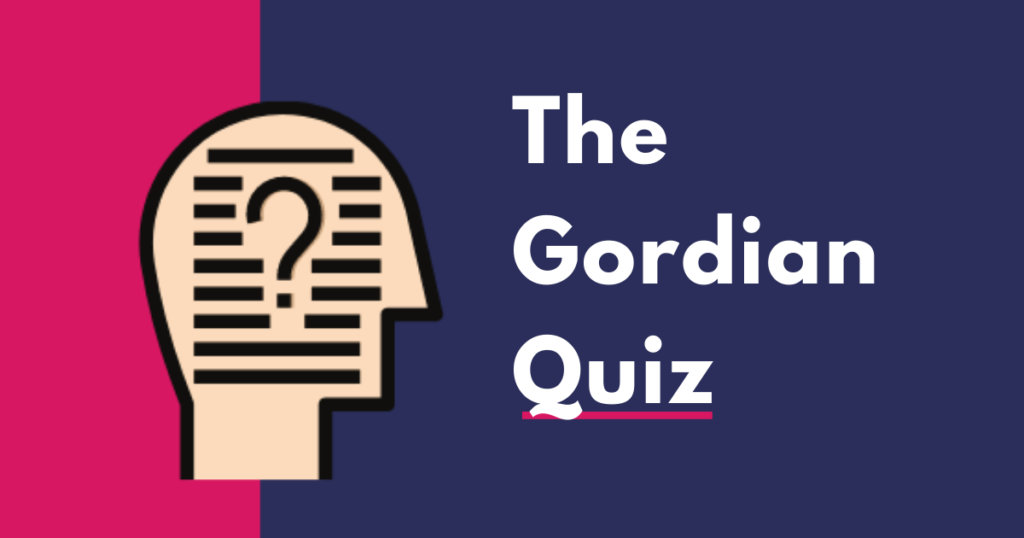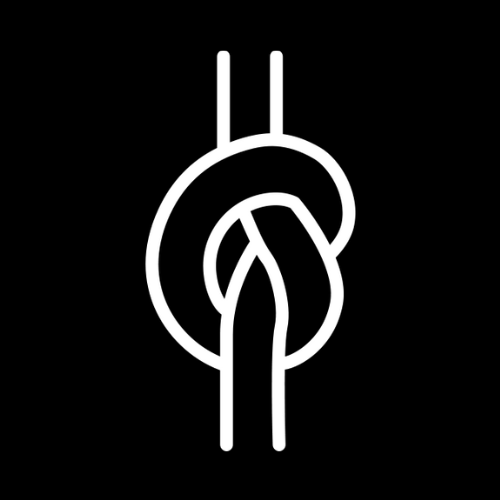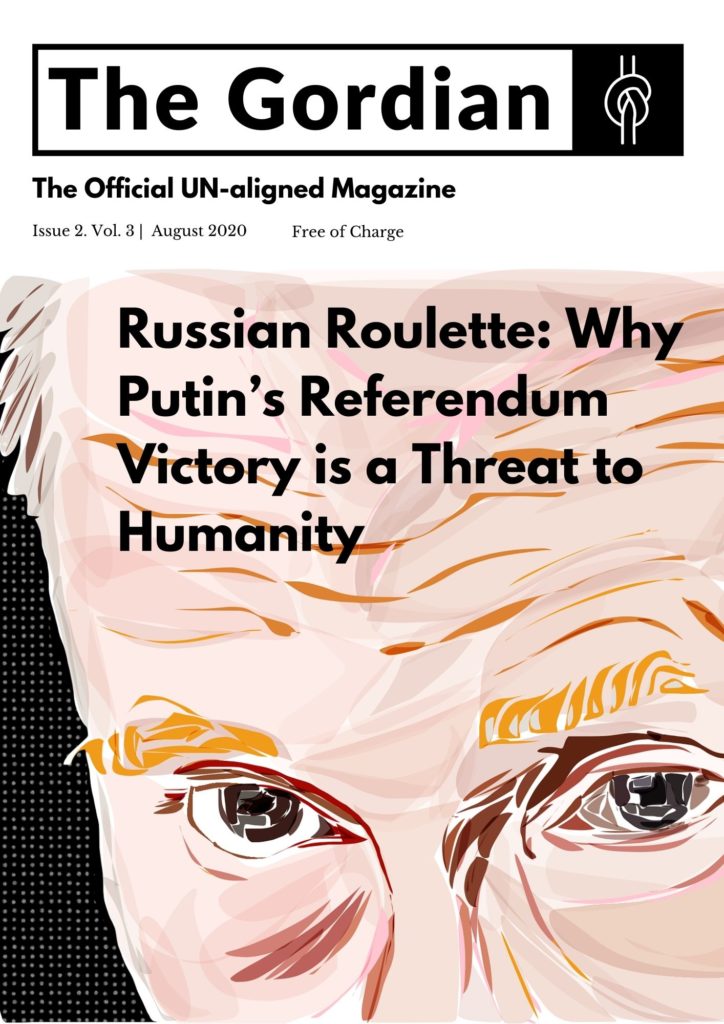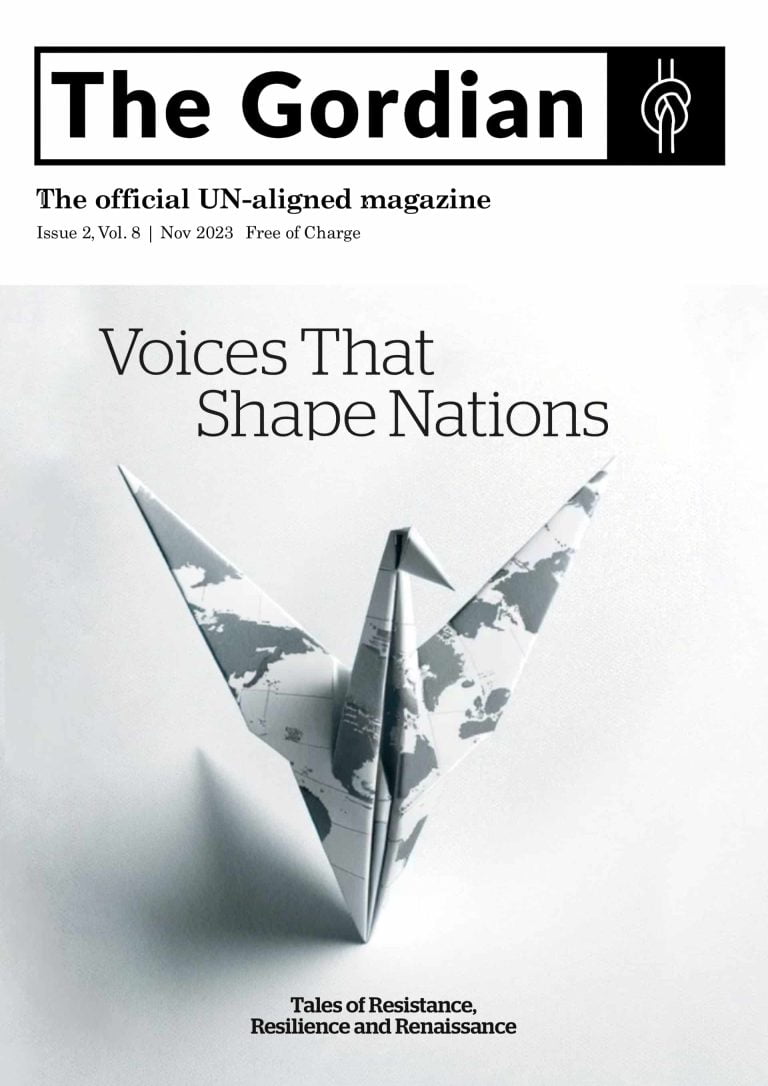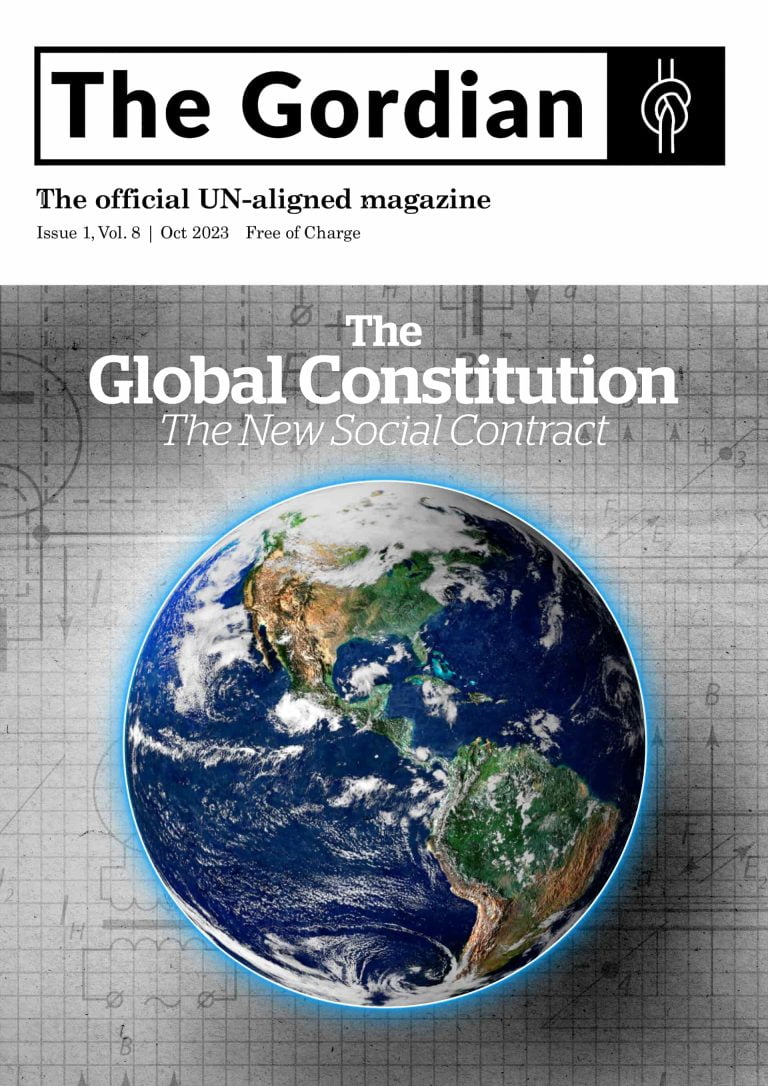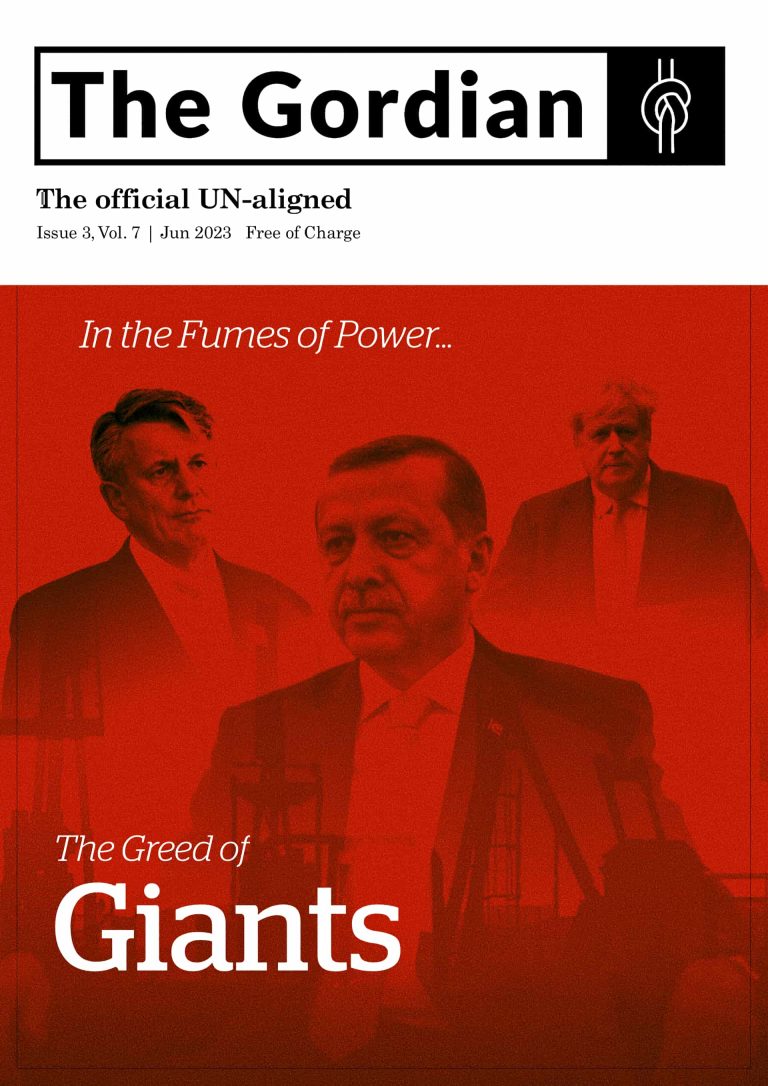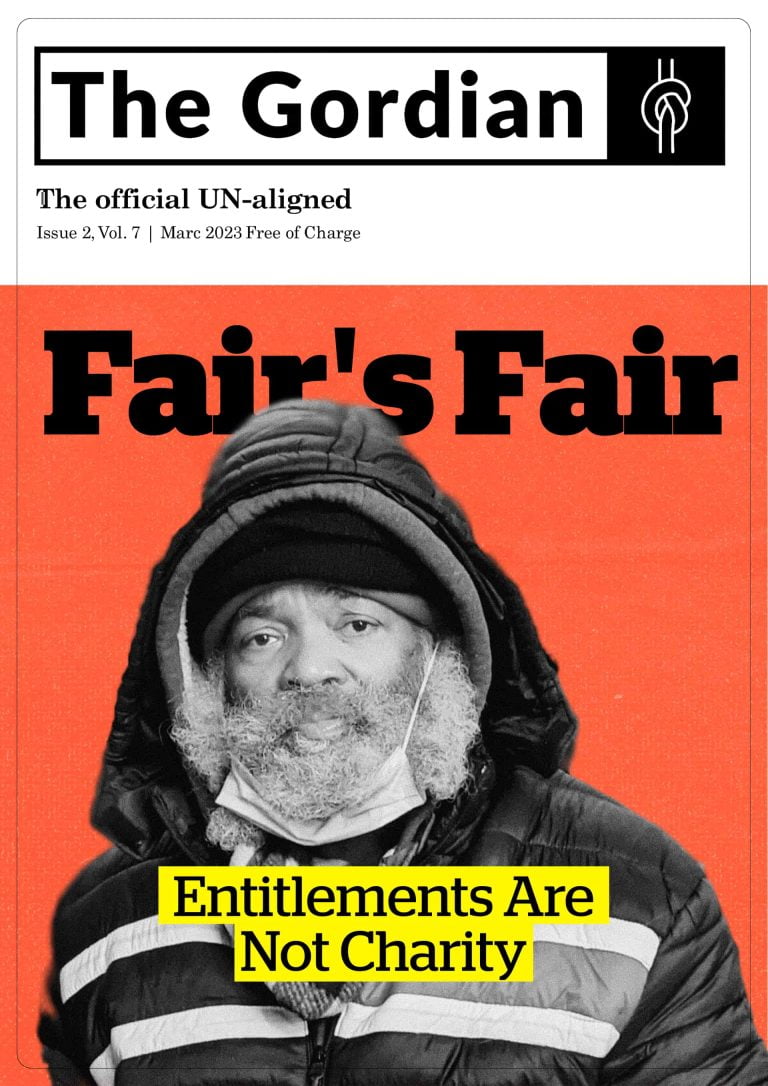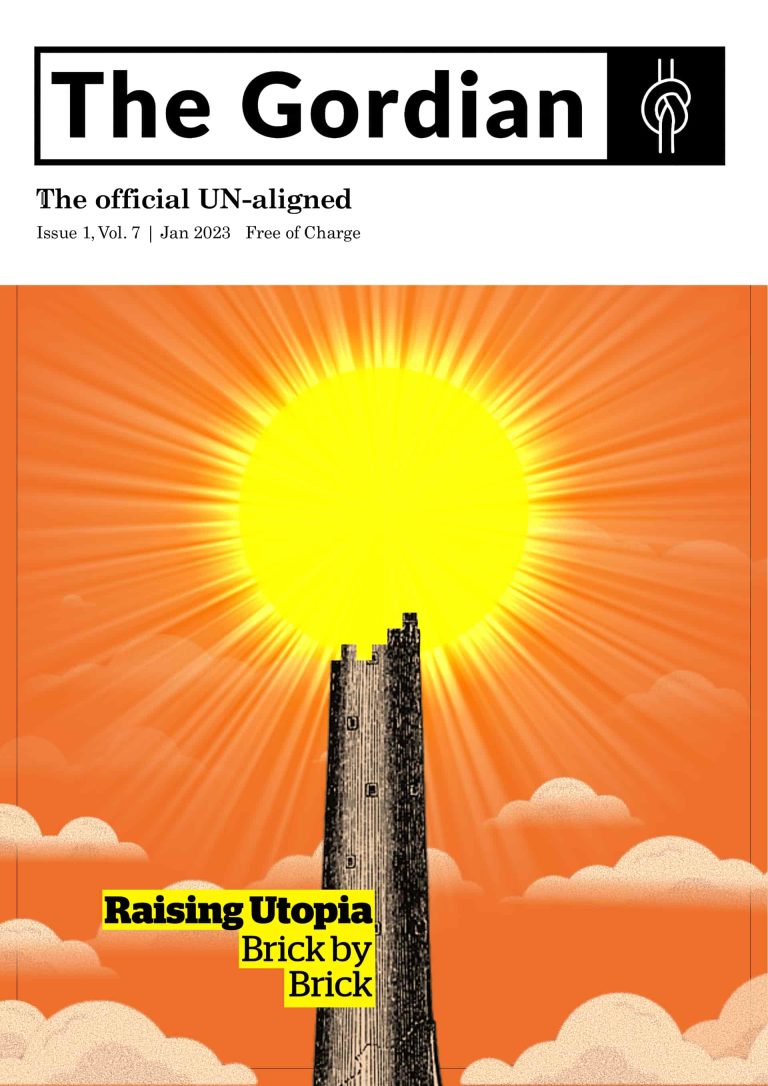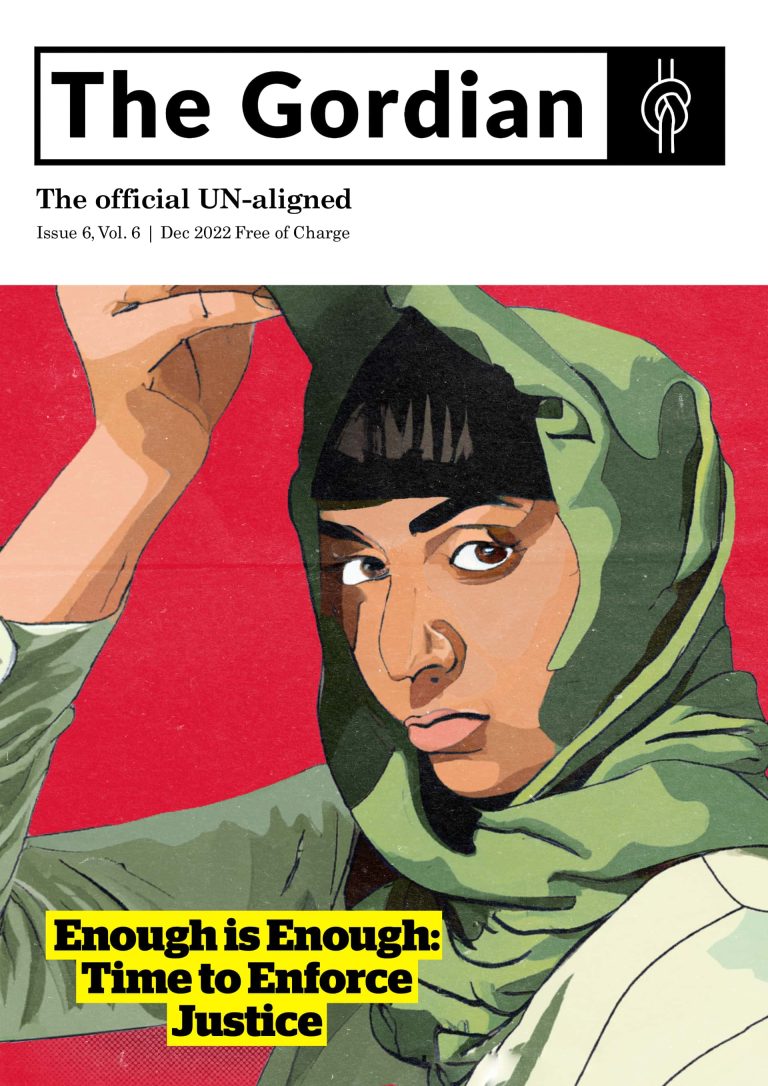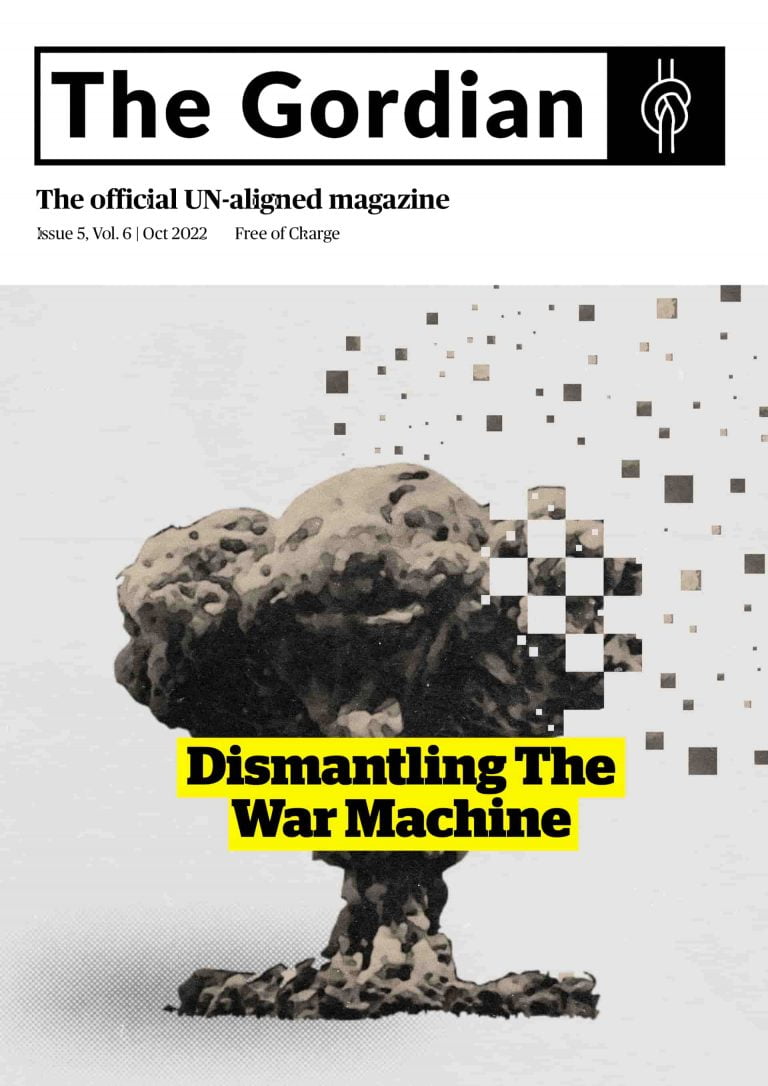Letter to Ashin Wirathu

Bhante Ashin Wirathu,
I am writing to you on behalf of UN-aligned, an international organisation that focusses on the need to replace the United Nations with a more effective and principled organisation, although we also work to promote human and animal rights, as well as the welfare of the planet.
Institutionalised religion has had a sad history in a number of countries around the world owing to its bigotry and abuse of power. Many spiritual people, including some of our members, have therefore looked to Buddhism as a beacon of justice and openness. This image has been tainted over the last few years by portrayals of monks leading a crusade against the Rohingya inhabitants of Myanmar. The contradiction here reminds many people of the darkest periods of some of the leading world religions.
We would therefore be grateful if you could answer these two simple questions for our members:
- How can you reconcile the teaching of the Buddha concerning love and tolerance, with the hostility some monks are fuelling against this defenceless minority, many of whom are dying as they flee persecution?
- Can your monastery do anything now to restore the spirit of fraternity that should reign amongst all the residents of Myanmar?
Should you deign to reply, your answer will, assuming it does not contravene any laws, be published on our website (un-aligned.org) and in The Gordian, our monthly magazine.
We look forward to hearing from you and thank you for your time;
Adrian LibertoFounder and Coordinator
UN-aligned
If you feel strongly about an issue and would like to confront it with the full support and backing of UN-aligned, please let us know. Also, help us increase the impact of our campaigns by inviting like minded people to join UN-aligned as members. The bigger we become, the further will our voice travel and therefore the more we will be able to achieve.
What you may have missed: July 2020
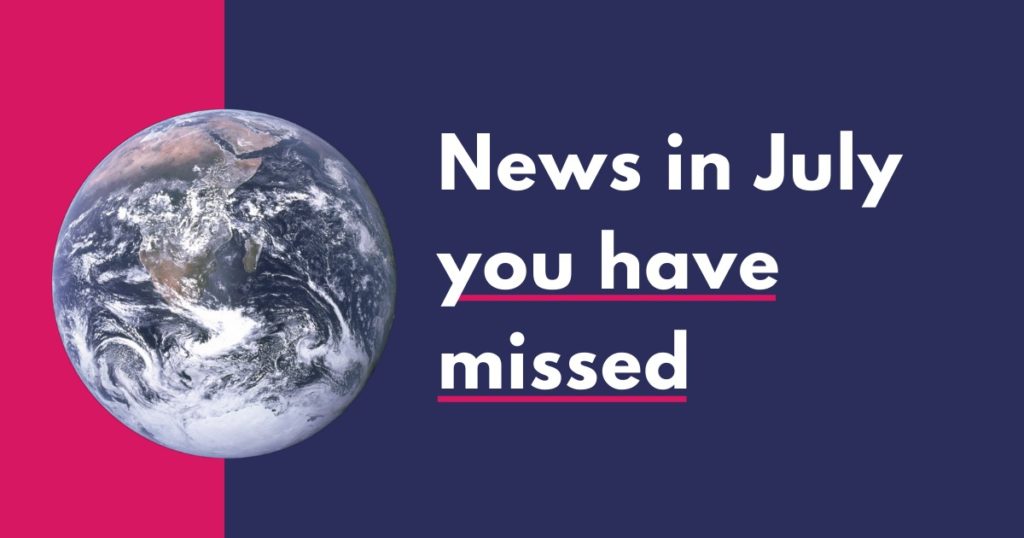
AFRICA
01.07.20: Mali. Over 30 farmers were slaughtered by armed jihadists on motorcycles while they were returning home from their fields in villages in the Mopti region.
05.07.20: Ethiopia. The number of people killed in protests over the murder of popular political singer, Hachalu Hundessa, on June 29 rose to 156 according to a senior official.
08.07.20: Ivory Coast. Prime Minister Amadou Gon Coulibaly died aged 61 a few days after returning from France where he had undergone a medical check-up relating to a heart condition. He fell ill at a ministerial meeting and was rushed to hospital where he died shortly afterwards. He was the ruling party’s candidate for the October presidential election and was expected to replace the outgoing President Alassane Ouattara.
10.07.20: Ethiopia. Two suspects were arrested over the killing of a popular political singer, Hachalu Hundessa, whose murder lead to protests that resulted in 166 deaths.
15.07.20: Tunisia. Prime Minister Elyes Fakhfakh resigned after President Kais Saied cited a conflict of interest that left his government in an untenable position. The government had only been set up five months earlier. This leaves the country in a difficult position, especially because of the deepening financial crisis that is related to the coronavirus pandemic.
19.07.20: Sudan. The death penalty and flogging, which were standard penalties for gay sex, have been abolished. The Sodomy Law had stipulated 100 lashes for the first offence, a jail sentence of five years for the second and execution for the third. Although the penalties have been reduced, gay sex, still remains illegal in Sudan.
21.07.20: Ethiopia. Egypt and Sudan agreed to continue talks in order to reach an agreement on the issues regarding the use of water from the Blue Nile for the Grand Renaissance Dam that Ethiopia is completing across the river.
30.07.20: Ivory Coast. Defence Minister Hamed Bakayoko has been appointed interim Prime Minister by President Ouattara following the sudden death of Amadou Gon Coulibaly earlier this month.
AMERICAS
01.07.20: Mexico. Police confirmed that gunmen had killed 24 people at a drug rehabilitation centre in Irapuato.
06.07.20: USA. A federal judge ruled that the controversial Dakota Access Pipeline must cease operations pending an environmental review.
18.07.20: Mexico. 20 men were kidnapped in Puerto Vallarta, Jalisco. The men from Guanajuato had just arrived at the resort city for a holiday.
25.0720. Honduras. Police were accused of shooting at protesters demanding the release of five Garífuna land defenders who had been kidnapped days earlier in the coastal town of Triunfo de la Cruz.
27.07.20: Barbados. Owen Arthur, died of heart failure in the capital Bridgetown aged 70. Owen was the longest serving Prime Minister of the West Indian island country, serving from 6 September 1994 to 15 January 2008.
ASIA
02.07.20: Myanmar. About 160 people were buried alive following a landslide at a jade mine in the north of the country. The “wave of mud” was caused by a bout of torrential rains.
02.07.20: Russia. A referendum allowing President Vladimir Putin to remain in office until 2036 was passed by 78% of voters, with only 21% voting against. Polling stations were opened from 25 June to July 1 and the turnout was 65%. The referendum included about 200 constitutional amendments which ranged from guaranteed minimum pensions to banning same-sex marriage and an affirmation in the Russian people’s belief in God.
05.07.20: Japan. Floods and landslides unleashed by torrential rains on Japan’s southern island of Kyushu have been causing havoc around the island and claiming the lives of scores of victims. In 2018, floods were responsible for over 200 fatalities.
10.07.20: South Korea. Seoul City Mayor Park Won-soon was found dead at Mt Bugak after his daughter reported him missing, adding that he had left a message that read “like a will”. A complaint regarding sexual harassment had recently been filed by one of Park’s former employees.
10.07.20: Turkey. In a retrograde move typical of the President, Erdogan announced that the iconic Istanbul landmark, the Hagia Sophia, which has been a museum since 1934, would be converted into a mosque. The Cathedral, completed in the 6th century, had been turned into a mosque in 1453 following the fall of the Byzantine Empire to the Ottomans. Erdogan said that the building would be open for prayers on July 24.
14.07.20: Armenia/Azerbaijan. Tensions between Armenia and Azerbaijan reached boiling point over the disputed Nagorno-Karabakh region, as both sides blamed the other for ceasefire violations. The clashes started on Sunday and by Tuesday seven soldiers and a civilian were killed on the Azeri side as well as four Armenian border guards on the opposite side of the border.
21.07.20: Iran. Supreme Leader Ayatollah Ali Khamenei announced that Iran would retaliate with an equivalent blow for the killing of Qassem Soleimani. The commander of the Revolutionary Guards was assassinated by American forces during a diplomatic visit to Iraq on January 3, 2020.
22. 07.20: Russia. Yuri Dmitriev, the head of Memorial, a human rights NGO was sentenced to three and a half years in prison for allegedly abusing his adopted daughter. Dmitriev was compiling a list of names of people from Karelia, a region bordering Finland, who were exterminated or deported during the Stalin regime. His supporters are convinced the trial was politically motivated.
30.07.20: Taiwan. Lee Teng-hui, the former president, died aged 97 in Taipei Veterans’ General Hospital. He was the nation’s fourth president and the first to be democratically elected. He was a strong advocate of Taiwanese independence from China.
31.07.20: Hong Kong, China. In the wake of a number of arrests of pro-democracy activists, leader Carrie Lam postponed the city’s legislative elections for a whole year citing the rise in Covid-19 cases as the reason for the move.
31.07.20: South Korea. The Central Bank reported a surge in damaged banknotes as coronavirus-worried citizens are microwaving their cash in an attempt to minimise the risk of infection. Apart from microwaves and ovens, people are also putting their cash through wash cycles in their washing machines!
EUROPE
01.07.20: Montenegro. The government has voted to legalise same-sex civil partnerships. President Milo Djukanovic said it was a confirmation that Montenegrin society “is maturing.”
03.07.20: France. President Macron has chosen a relatively unknown politician, Jean Castex, as the country’s new prime minister. He will replace Édouard Philippe, who resigned earlier in order to run for the Le Havre mayoral elections.
12.07.20: UK. Two protesters from Animal Rebellion were arrested “on suspicion of causing criminal damage” after dying the water of two fountains in London’s Trafalgar Square, red. The activists were demanding an end to animal farming and claimed that the red symbolised “blood that is on the hands of the UK government.”
13.07.20: Poland. President Duda has narrowly won the presidential elections and secured another five years in office. He campaigned on nationalistic, homophobic and religious platform that will spell further confrontation with the European Union.
18.07.20: Spain. Novelist, journalist and screenwriter, Juan Marsé Carbó, died aged 87. He was awarded the Cervantes Prize in 2008, which is the highest literary award in Spain. His works often revolve around post-war Barcellona.
21.07.20: European Union. After months of discussions, EU leaders finally reached an agreement on a massive stimulus plan for their coronavirus-stricken economies.
24.07.20: Hungary. Freedom of the press took another significant blow following the sacking of the editor-in-chief of Index, Hungary’s largest independent online news broadcaster. A few months ago, one of Prime Minister Orban’s supporters bought a 50% stake in the agency, which explains the sacking. As a result, over 70 journalists, almost the whole of the editorial team, resigned en masse in protest.
26.07.20: France. British-American actress, Dame Olivia Mary de Havilland died aged 104. She was one of the last remaining stars of the golden age of Hollywood and starred in almost 50 feature films, including the classic Gone with The Wind.
27.07.20: Ukraine. A new ceasefire in eastern Ukraine was supposed to commence today, but the government in Kiev expressed concerns that it was already being broken by Russian-backed separatists.
30.07.20: UK. Alan Parker, the acclaimed British director of such films as Fame, Evita and Bugsy Malone, died aged 76.
OCEANIA
24.07.20: Australia. A report by the World Wildlife Fund (WWF) revealed data highlighting the catastrophic impact of the recent bushfires. The devastation is almost three times the January estimates. Nearly 3 billion animals were killed or displaced: about 143 million mammals, 180 million birds, 51 million frogs and 2.5 billion reptiles.
UNITED NATIONS
01.07.20: UN. Resolution 2532 (2020) was adopted by the Security Council calling upon “all parties to armed conflicts to engage immediately in a durable humanitarian pause for at least 90 consecutive days, in order to enable the safe, unhindered and sustained delivery of humanitarian assistance, provisions of related services by impartial humanitarian actors…”
Russian Roulette: Why Putin’s Referendum Victory is a Threat to Humanity
By Adrian Liberto

A Grim Trend
July seems to have accelerated the grim trend that has been eroding civility and security over the last few years. The month dawned with Hong Kong finding itself stripped of many of its civil liberties. A few days later, on the 6th, President Trump formally notified the World Health Organisation that the US would be withdrawing from the organisation once the required twelve-month’s period of notice was over. On the 10th, Turkey’s President Erdogan issued a decree that will convert the Hagia Sophia into a mosque. The iconic 6th century basilica had been a museum since 1934 and the move is seen as just another step designed to convert the country into a theocracy. Meanwhile, neighbouring countries Armenia and Azerbaijan are edging closer to war, with clashes resulting in fatalities on either side of the border…
Many people do not seem to notice, fewer still appear to care. We are sleepwalking into another Dark Ages as our civil liberties are being eroded on all sides! Many of the assaults are taking place in the name of democracy.
By far the most dangerous event this July was the result of the Russian referendum. Moscow is not Vegas; what happens there does not stay there. Putin’s victory is a threat to us all. The referendum was more than a means to paving the way for the president to stay in office until 2036. Hidden within sweeteners like welfare perks and patriotic gimmicks were other serious amendments to the constitution. To understand the gravity of the situation, we must first have no delusions about the ruthlessness of the Russian leader, and the article “Vlad the Terrible” offers some insight into the sort of person Putin is. We must also recognise that the referendum was anything but “free and fair”.
A Mockery of the Consultation Process
For referendums to be meaningful and ethical, certain conditions must be met. First, voters must be given an informed choice. In Switzerland, for example, where referendums are an important feature of democracy, ballot papers are accompanied by information booklets. These include explanations, arguments for and against, and government recommendations. Of course, no number of booklets will help if voters do not have access to a civic education from an early age. During the Russian referendum, only the attractive elements were promoted, such as nationalistic ones relating to the enshrining of the Russian language in the constitution and the honouring the fallen fighters World War II, or the ones relating to welfare.
Second, without safeguards, referendums can be exploited by unscrupulous politicians. For instance, a politician could promise a referendum on free public transport, if elected, despite the fact that the funds for such a move may not even be available. These safeguards should also include transparency and specificity. It is quite immoral to hold a referendum which includes diverse issues, as Putin’s did, with his 200 proposed changes revolving around about 14 crucial issues.. This is at best, bribery, and at worst, blackmail. Imagine a referendum that included a doubling of pensions and a three-day week coupled with something nefarious. If the evil element only affected a minority, or regarded government perks that would not have an immediate impact on the people, the chances are that the vote would go through. This is bribery pure and simple and is exactly what Putin did. In fact, knowing Putin, there may also have been an element of blackmail, in as much as a “no” vote could have easily triggered a welfare clawback.
Third, the government has a duty to protect its citizens from lies, disinformation and meddling by third parties with a vested interest in causing harm. The Conservative government in the UK, for instance, had failed in its duty to protect the people from these dangers, as a report this month by the Intelligence and Security Committee bluntly confirms. In Russia, the narrative was almost entirely owned by the government, with much of the opposition suppressed.
Fourth, apart from education, information and choice, voters need moral integrity. Referendums should never be held about choices that discriminate against minorities or contravene basic ethical principles. Putin’s referendum included discriminatory elements and an attack on human rights through the weakening of judicial independence.
Finally, referendums, like every voting system, have to be free and fair. The Russian Constitutional Referendum held from the 25 June to 1 July was anything but so. There were reports of voter coercion, multiple voting and intimidation, as well as other irregularities.
A Leap in the Putin Threat Level
Catch me if you can
The first and obvious threat posed by the referendum result is the prospect of having Putin in power for another 16 years. He is already strutting about on the world stage with an air of invincibility while leaving a legacy of death and destruction in his wake. What mischief will an emboldened Putin not be capable of committing? Limited terms are a necessary evil in order to curb the potential despots like Putin. Indeed, the cost is high, as a lack of continuity often means that necessary long-term planning becomes virtually impossible. Limited terms also make it more likely that successive leaders dismantle the progress that was achieved by their predecessor merely for the sake of self-aggrandisement, which is exactly what Trump started to do once he entered the oval office. Nevertheless, the threat of creating despots has been calculated as being much more serious and hence the need for limited terms in so many constitutions.
Erosion of checks and balances
The second worrying changes concern the weakening of the Constitutional and Supreme Courts by facilitating the removal of federal judges. Moreover, judges and other high-profile officials will be barred from possessing dual citizenship or residency in a foreign country. These amendments will make it harder for anyone in a position of authority to challenge the president for fear of losing their position and having no means of escaping the vindictive wrath of the president. Putin is setting the scene for more chicanery and mischief.
In God’s name
Third, the religious card should always set alarm bells going. Belief in God is now mentioned in the constitution, virtually demonising and politically disenfranchising atheist, agnostics and possibly, non-Christians. The clause may seem harmless for now, but the potential for abuse is immense. Already, the added amendment that defines marriage as the relationship between one man and one woman indicates the direction the country is going. Marriage is a convention and for many centuries it was a religious one, although alternatives always existed, as in the case of the Mosuo people (read the article about these amazing customs in our November 2019 Issue). The institution evolved and in much of continental Europe religious ceremonies became secondary to civil marriages after the French Revolution and the eventual spread of the Napoleonic Code. In England, civil marriage came into force in 1836. Whilst same sex unions were often accepted in antiquity, with the spread of the Abrahamic religions, such unions were increasingly censured, and it was not until 1 October 1989, that Denmark became the first modern country to legalise same-sex unions. Since then another 28 countries followed suit. Putin has now constitutionally blocked any possible development on this score in Russia, thus denying present and future generations of the right to legally formalise their same-sex union. This, in a country that has a serious problem with homophobia.
Russia first
Despite the seriousness of these alarming and retrograde revisions, perhaps the most sinister of all is the seemingly innocuous one regarding the subordination of international law to the Russian Constitution. True, Putin’s Russia has never considered itself accountable to anyone, but there is something particularly sinister in formalising this “I don’t give a damn” attitude. As the world becomes more interrelated, International Law is more, not less important. Most of the urgent issues we are facing today, such as climate change, pandemics, the sixth mass extinction and pollution are global issues that need to be tackled globally. A big player like Russia wanting to go it alone is a serious blow to the international community, just as Trump’s policies have been. Besides, the Russian Constitution can be vague and opened to interpretation. The Constitution’s section on human rights and fundamental freedoms, for instance, are guaranteed in line with International Law. The Russian Constitution, however, is now above this law. So where does that leave human rights if not in Limbo?
Watch this space
The scene is set. Putin has planned it carefully. What will be played out on the stage, only Putin’s scheming mind can know for now. What is certain is that the world is a much more dangerous place than it was a mere month ago.
Vlad the Terrible
By Adrian Liberto

Vladimir Putin is not quite Vlad the Impaler, nor Ivan the Terrible, but a ruthless tyrant nonetheless. This brutal man can now cling to power until 2036, thus making the world a much more dangerous place. In December 2016 John McCain called him “a thug and a murder”: he was not exaggerating. Here are some examples of Putin’s crimes …
Vlad the Murderer
It should not be surprising that someone who worked as a KGB Intelligence Officer for 16 years should feel quite comfortable with committing murder. The list of Putin’s alleged victims is long and includes prominent figures such as rival Boris Nemtsov, investigative journalist Anna Politkovskaya and former spy, Alexander Litvinenko. Double-agent Sergei Skripal and his daughter Yulia were poisoned with Novichok nerve agent in England on March 4, 2018, but managed to survive the attack and are now said to be living under false identities in New Zealand. Should anyone be wondering how such a person could be tolerated in the international political community, the answer can be found in Trump’s comments, shortly after being elected, regarding Putin’s crimes: “Well, I think that our country does plenty of killing, too…”
Vlad the Oppressor
Sometimes, Putin prefers to put critics or opponents behind bars. The list of people he has imprisoned is impressive and goes into the hundreds and some are still languishing in his gulags. It includes business people, like Mikhail Khodorkovsky, artists, such as the feminist punk group Pussy Riot and filmmaker and writer Oleg Sentsov, and of course, politicians, like his main rival, Alexei Navainy and chess grandmaster, turned politician, Garry Kasparov. Indeed, incarceration is just one of many intimidation and suppressing tactics used by the president.
Vlad the Conqueror
Putin is not content with lording his tyranny over the largest country in the world. His greed is boundless, as his occupation of Abkhazia, South Ossetia and Crimea, as well as his relentless inroads into Eastern Ukraine, clearly demonstrate. These unlawful land grabs have cost thousands of lives and countless refugees. However, seeing as Russia holds a permanent seat at the UN Security Council, such crimes go unpunished and continue unchecked.
Vlad the Accomplice
At the top of the list of Putin’s unholy alliances is his support for Syria’s President Bashar al-Assad. The war in Syria, which has already cost hundreds of thousands of lives and millions of refugees, owes its continuation and much of its barbarity to Putin. Nothing is sacred for Putin. Chemical weapons have been used, schools and hospitals have been bombed and efforts to provide much needed humanitarian assistance blocked. Addressing an emergency session of the UN Security Council in December 2016, US ambassador Samantha Power confronted Syria, Russia and Iran regarding the atrocities that were being committed in Syria and asked:
“Are you truly incapable of shame? Is there literally nothing that can shame you?
“Is there no act of barbarism against civilians, no execution of a child that gets under your skin? That just creeps you out a little bit? Is there nothing you will not lie about, or justify?”
To this day, the answer remains a simple “No!”
Vlad the Devious
A number of events that occurred within Russia’s direct sphere of influence also highlight Putin’s disregard for human life. A string of bombings in 1999, while Putin was Prime Minister, for instance, were used as a pretext to invade Chechnya, although there is evidence that suggests the bombings were orchestrated by the Russian security services. This was what Politkovskaya was investigating when she was murdered in October 2006. Equally shocking are the events surrounding the Kursk submarine disaster in which every one of the 118 crew members perished. The nuclear-powered Kursk sank on August 12, 2000, a few months after Putin became president. Not only was the Russian rescue operation suspiciously slow and botched, with an emergency not having been declared until 11 hours after the accident, but Putin deliberately forbade British and Norwegian vessels, who were better placed for a rescue mission, from assisting until a good five days had passed. It was these British and Norwegian divers who eventually found the trapped and drowned bodies seven days later. Another suspicious submarine accident, which resulted in 14 fatalities, occurred on July 2, 2019 with the deep-sea submarine nicknamed Losharik.
Vlad the self-serving
Putin’s obsession with his macho image is more than just a matter of stunts, like the famous one involving the Siberian tiger. The way the Beslan School siege was dealt with, for instance, ended up costing the lives of 333 innocent people, of which 186 were children. The siege by Islamic militants started on September 1, 2004 and lasted three days, until the lives of the hostages took second place to the need to adopt a heavy-handed approach, which resulted in the deployment of tanks, incendiary rockets and other forms of heavy weapons.
The way the Moscow Dubrovka Theatre hostage crisis, two years earlier had been dealt with with similar disregard for human life. On that occasion about 200 of the 850 hostages died, as well as all 40 Chechen insurgents, when the security forces pumped a toxic gas into the theatre. The identity of the substance was never revealed.
The way the coronavirus pandemic was dealt with betrayed the same obsession with image over safety. As Kirill Martynov, the political editor of Novaya Gazeta pointed out:
“First the state lied by hiding the true extent of what was happening from the people, from itself and from the outside world. When the extent of the falsification became obvious the state continued to tell lies…”This is Putin. Jean Rostans had said: “Kill one man, and you are a murderer. Kill millions of men, and you are a conqueror. Kill them all, and you are a god.” Jean Rostand (1939). Putin has proved to be a murderer and a conqueror; we can only hope he does not prove to be a god!
The OSCE Minsk Group is Unfit to Conciliate Between Azerbaijan & Armenia over Nagorno-Karabakh
By Ariana Yekrangi
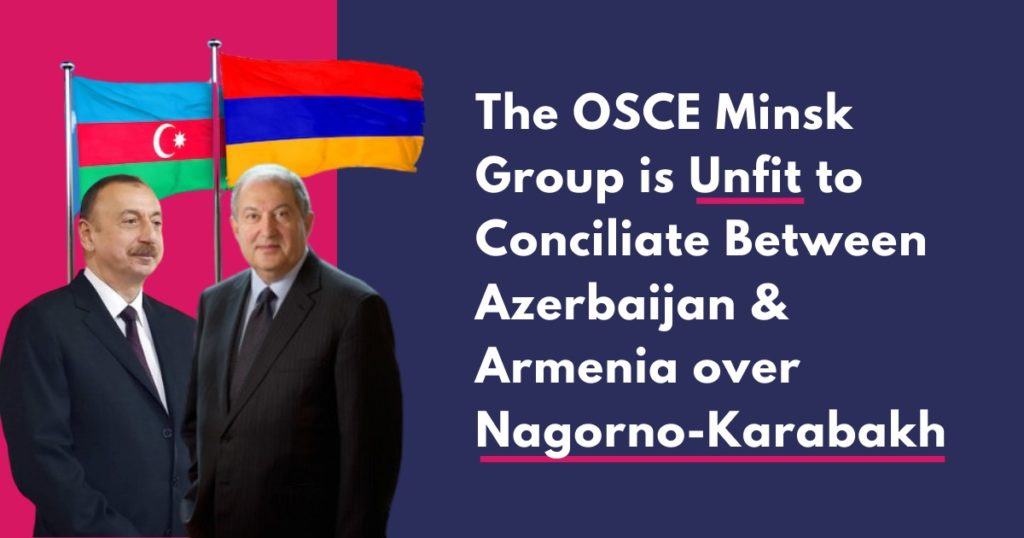
In 1992, two years before the war between the neighbouring Armenia and Azerbaijan ended, the Conference on Security and Cooperation in Europe (OSCE), met in Helsinki and decided to chair negotiations towards a peaceful political settlement for the crisis. The body, also known as the Minsk group, is led and co-chaired by the US, Russia and France with Belarus, Germany, Italy, Portugal, The Netherlands, Sweden, Finland, Turkey, Armenia and Azerbaijan as participating member states.
During the last OSCE Minsk group summit in 2017, talks between Armenia and Azerbaijan were described as “constructive”. The Presidents of Armenia and Azerbaijan agreed to take measures to intensify the negotiation process and even take additional steps to reduce tensions on the line of contact. However, in July 2020, the Southern Caucasus region once again became the scene of bitter military as well as political clashes: tensions between Armenia and Azerbaijan reached boiling point as both sides blamed the other for ceasefire violations. Seven soldiers and a civilian were killed on the Azeri side as well as four Armenian border guards on the opposite side of the border.
Just within the past ten years, artillery shelling and skirmishes between the Azerbaijani and Armenian military have resulted in hundreds of deaths.
Where is Nagorno-Karabakh and why has it become a centre of battleground between Armenia and Azerbaijan?
Nagorno-Karabakh, also known by ethnic Armenians as Artsakh, is located at the eastern edge of the Armenian Highlands and formally enclaved in Azeri territory. In the aftermath of the first world war, the Transcaucasian Federation was divided into Georgia, Armenia and Azerbaijan, all three of which were integrated into the USSR. As a part of his “divide and rule” strategy to ensure Armenians would cooperate with the Soviet Union, Stalin created an autonomous region for ethnic Armenians, called Nagorno Karabakh. In the early parts of the 20th century when the Soviet’s rule over the block loosened, Nagorno Karabakh region’s parliament voted to join Armenia and thus became a breakaway state. Following the decision, chaos followed which resulted in the deaths of thousands of Armenian and Azeri men and women. Today Nagorno Karabakh is formally recognised as a part of Azerbaijan even though the region is largely sustained and supported by Armenia.
Key issues
1. Erbfeindschaft: The legacy of the genocide must become irrelevant
A key to the resolution of this conflict lies in addressing historical components that go into this century-long issue. The wounds of the Armenian Genocide in 1915, a Turkification attempt in which 1.5 million Armenians were mass murdered in Turkey and adjoining regions by the Ottoman government, are still fresh. Today in Armenia, there lies a general sense of mistrust that the Azeri government cannot and must not be trusted, less so when it comes to Nagorno-Karabakh. Both governments must allow time for these historical tragedies to heal.
The word “erbfeindschaft” is meaningless, hatred does not lie in our DNA. As the case for Japan and China has shown, nations who have shared a past of violence, war, and atrocities can successfully forge strong friendships. Until the “Ancient enemies” theory between Azeris and Armenians will become irrelevant, governments on both sides have a duty to stop and oppose disgusting propaganda portrayed by political entrepreneurs whose fueling and stirring up of the crisis is detrimental to the peace process.
2. The Minsk Group is not here to solve anything: Russia and Turkey are more concerned about their self interests, while The US is not interested at all.
Geo political ambitions of Russia and Turkey are main obstacles to the peace process of Nagorno-Karabakh region. The Russian military’s support in the form of a defense agreement between the Armenian government and the Russian Federation, only exacerbates concerns of the state’s neutrality. In fact, deteriorating relations between Russia and Turkey over the war in Syria may be a reason why Moscow has an interest in keeping the conflict alive in order to maintain its influence in the southern Caucasus region. On the other hand, Turkey’s unwavering support for Azerbaijan’s cause is partly because of its own nationalistic agenda.
Across the ocean, the lack of senior level response to the latest violence is proof that Washington does not consider the Caucasus as a priority. During his four years in office, Trump and his administration have not even bothered issuing a policy on the South Caucasus region.
Fundamental changes in membership as well as leadership are a must for the OSCE to have any meaningful impact. Azerbaijanis have long distrusted the OSCE’s Minsk group. The replacement of France in favour of the European Union could be a solution to this problem: the EU would represent all of Europe and has more experience mediating similar conflicts in the Balkans, for example. Commitment to demilitarisation and honouring cease-fire agreements, respect for the democratic will in Nagorno-Karabakh and confidence-building measures among the parties to the conflict are key in building a stronger Caucasia.
The situation in Nagorno-Karabakh is unlikely to change with the current inexperienced peace-resoluters. Not only structurally flawed, but also completely mismatched, the defective Minsk group will continue to fail in its endeavor in stopping this ancient battle.
Hagia Sophia: National Sovereignty is not the Issue, Erdogan Likes to Play the Blaming Game
By Ariana Yekrangi

A cathedral first, then a mosque, and later a museum. Last week, Istanbul’s Hagia Sophia became a mosque once again; an insular act for Turkey’s Erdogan to flex his political mussels and to fuel his posture of indignation and grievance. The president knows casting cultural divides resonates with many of his support base, inside as well as outside of Turkey. He boosts his popularity and draws strength from his constant tussle with domestic and foreign foemen.
Finished in 537, Hagia Sophia is one of the culminating architectural achievements of the late antiquity and the Byzantine Empire. I first visited this cultural site in 2018 and it soon became apparent to me that this was no ordinary building: it was a manifestation of beauty, a magnificent hybrid of Turkish and European architecture with ornate pillars, mosaics and a breath-taking dome that easily compared with Rome’s finest churches. The combination of giant Islamic iconography, which was installed by Sultan Mehmed II, as a symbol of imperial faith, and a magnificent picture of a Madonna on its sublime dome, assured me that Istanbul was still the bridge that connects the east to the west.
“Those who do not study history are doomed to repeat it. Yet those who do study history are doomed to stand by helplessly while everyone else repeats it.”
Although there may have been many reasons behind the secularisation of the Hagia Sophia and its conversion into a museum in 1934, the move gave a powerful message about what the new Turkey wanted to be: a secular and peaceful nation; a nation made for its citizens regardless of political and religious views; one that not only recognised its diverse past, but also embraced it. Today however, this is no longer the case. Although a clear political expedient for the president, turning the monument back into a mosque was in no way a surprise; it was a cause close to the hearts of many Turkish islamists and nationalists for decades. Some polls even suggest that a majority of Turks favoured the conversion.
Secularism is becoming a fading force in the Turkish society. Marked by growing authoritarianism and tyranny, Erdogan’s 16 years in power has been nothing but a chipping away of the secular foundations that Mustafa Ataturk had laid during his reforms in the 1920s and 1930s. Erdogan’s obsession with Ataturk’s legacy has turned him into a pugnacious and retrograde leader.
Who is the Hagia Sophia for?
The Hagia Sophia does not belong to musilims and nor does it belong to the Orthodox church. The building is part of UNESCO for a clear reason: it is a gift to all humankind, for believers and non-believers alike.
While I am sceptical that this greet monument will be turned into a museum anytime soon, I am certain that the desire for a secular Turkey will never die. The President will eventually join other dictators in the ash heaps of history.
Get to Know our Members: Katha from Germany
By Katha Strophe

This interview is part of an ongoing series about our members and how they wish to take charge of UN-aligned and use it as a beacon for hope and change. If you wish to participate in these interviews, please contact us here.
Tell us a little about yourself Katha. What is your background? Where do you live? What are some of your hobbies and things you are passionate about?
I am from the westernmost part of Germany, only a bike ride away from the Netherlands. I have recently quitted my job in Berlin because I wanted to travel; unfortunately, this just happened when the Covid-19 pandemic hit us, so I decided to move back home and stay here instead. I enjoy music, being surrounded by nature, travelling and making friends. My most passionate hobby is learning about Asian language and culture – especially Chinese, which I studied at university, and Japanese.
How did you become interested in UN-aligned?
I got to know Adrian through a friend in Chengdu and that’s how I also met Ariana who was his flatmate at the time. Back then, the two were talking about this project they had in mind and I was fascinated by the idea. When it finally became reality, of course, I wanted to support it – so far I am doing so only as a reader and follower.
You told us that you are very good with staying in touch with friends that you met along your way. What is your secret in keeping in touch with friends/family and why do you think having long-distance friendships is important?
After leaving my hometown area for the first time in 2010 to study in China for one year, I learned that it is very hard to keep friendships alive when you are far away. With some of my friends I only spoke once in the entire year, luckily our friendship was strong enough that after my return it was quickly revived. I was also trying to keep in touch with all those new friends who became so close to me in such a short time. I think if you are in an entirely new and foreign environment, the bonds and memories you form are much stronger.
After many more years of travel, meeting and parting with people, I can say the only secret I know of is: effort!
You have to show you are interested in keeping up a relationship, even more so in the beginning – the longer you know each other, the easier it is to just occasionally drop a message. Of course, both sides have to be willing to invest their time. If I am the only person writing, after a while, I might also grow tired and give up.
For me, a practical reason to keep in touch with friends is improving my language skills, since it’s my only way to practice. From an emotional viewpoint however, it’s because I value friendship almost like family.
“By connecting with many people from all over the world I have gained a sense of a world family.”
I was able to learn so much and became more trusting towards people who gave me a more positive outlook on the state of the world itself.
There is an old saying “out of sight, out of mind”. What do you think about it?
I think it is very true, but out of mind doesn’t mean out of heart.
I didn’t meet some friends from my school days much after I went to the university, even though they lived relatively close by. These are mostly friends who have a strong connection to people from their hometown and the area they grew-up in. For them, people who are nearby count as more important. This does not mean they stopped liking me, but rather, simply because I was not available, I became of less importance to them. If I went to visit these old friends again however, they would always welcome me with open arms.
What part does social media play in your long-distance friendships? Are there any special tools you use to stay in touch with loved ones?
Quite a big part! I created my Facebook account in 2009 while I was in Taiwan for a summer school just to stay in touch with the new friends I met, now I also use Instagram. To stay connected to my friends in China, I use the messenger app WeChat: the app allows you to share pictures, articles or one can just scroll down the timeline of friends who are sharing some news.
Before I used to have pen friends or sent lengthy emails to my friends. I also used Skype a lot to make video calls mainly with my family. At the moment, I have four different messenger apps in my phone because of the different countries my friends live in. The apps take up a lot of space, but it’s so convenient and, often, the only way to stay in touch with certain people, especially those in mainland China where many foreign websites and apps are blocked.
Since apps gain more and more functions, it’s becoming very easy to spontaneously contact friends: you can choose if you just want to write or simply leave a voice message. Although for video calls, I usually try to arrange a date and time, because of the time differences we may have.
Do you have any tips for people who would like to stay connected with their friends across the world?
If there is a way, go and meet them! I know not everyone has the financial means and possibilities to travel so much, but if you get the chance, even shortly, try to seize it. I have met old friends in some distant places for only a couple of hours just to see them again!
Naturally, in recent times meeting each other in person has become the main problem, which is when I realised the value of friendships that I managed to maintain even though we haven’t been able to meet for years.
Despite the situation we face now, I found the most important point in maintaining friendships is to show your friends that you want to keep being a part of their world, even if you are far away and just popping in from time to time.
Not every friendship has to be super close. Be patient if they don’t reply right away, some friends get back to me weeks later because they want to take their time to reply. Also, share something from your own life, it’s easier to engage in a conversation if you are relaying something about your work, for instance, and then you could ask them how they are doing at their job; compared to a vague: “How are you?”. Sending a funny gif or an image along the lines of “this reminded me of you” is also a good starting point.
Lastly, sometimes it’s fine to just wish a happy birthday on Facebook or drop a like and comment on their Instagram picture. It might seem shallow, but it shows that you take an interest in their life. Believe it or not, this might just result in amazing opportunities.
True story: A friend that I had met at the university in China, was staying less than one hour away from Berlin; I only found out about this because I read someone commenting on her Facebook post. After eight years, we finally met up again and had a great time together.
You agreed to translate the UN-aligned manifesto into German, we are very grateful for your time and energy. What does the manifesto mean to you and how do you think it can influence our society?
I believe the message of the manifesto will focus people on global issues that concern all of us, such as wars and environmental degradation and the migrations they may cause.
We tend to mainly direct our attention to the problems we are facing within our borders. Although these may feel quite relatable, we need to understand that these borders only exist in our head and that global issues won’t stop at a fictional line – we are all indeed “in the same boat”.
What publications of UN-aligned do you enjoy the most?
I enjoy reading The Gordian Magazine, because it gives me insights into new topics I might not have heard about.
I felt a bit ashamed, because I haven’t been following the news much lately. I soon realised that the reason is mainly because of the way the news is portrayed. I don’t want to hear about yet another outrageous Trump tweet.
I have recently subscribed to a German online magazine that tries to change the perspective and give more detail by publishing several articles relating to a certain matter. The magazine gives readers the option to have a discussion about the topics, so the members can interact with each other, maybe that’s something that could be a good approach for The Gordian too.
How do you think UN-aligned could become more relevant to people in Germany?
At the moment, the general opinion is to focus on Germany, as if we were going backwards in time with nationalism on the rise. It seems as though in many countries the global pandemic strengthened the “us versus them” narrative. On the other hand, this also highlighted many issues we have in our society. There is a growing group of people who are not happy with the way the government is run so UN-aligned could be relevant to those who are taking initiative on a local scale – especially environment related.
What sort of organisation do you want UN-aligned to be? What are some of the activities that you want UN-aligned to focus on?
I believe I read somewhere that UN-aligned’s mission is to be a beacon of hope. This is a mission I value.
I would like UN-aligned to be a place where people can come together without being judged. I studied Chinese and love the Chinese language and culture – yet every time I express my adoration for it in Europe most people’s initial response is “but what about human rights?”.
Of course I do not agree with the way many things are run in China and don’t want to promote the Chinese government’s actions, especially in respect to minorities. But we have to try and understand where they are coming from and if we do not engage in conversation with them how can we hope to change their mind on matters? We should not shut people out because of their background and actively listen in order to learn about their point of view.
Music, Drama, Comedy & Illusion at Sichuan Opera
By Jonna Lappalainen
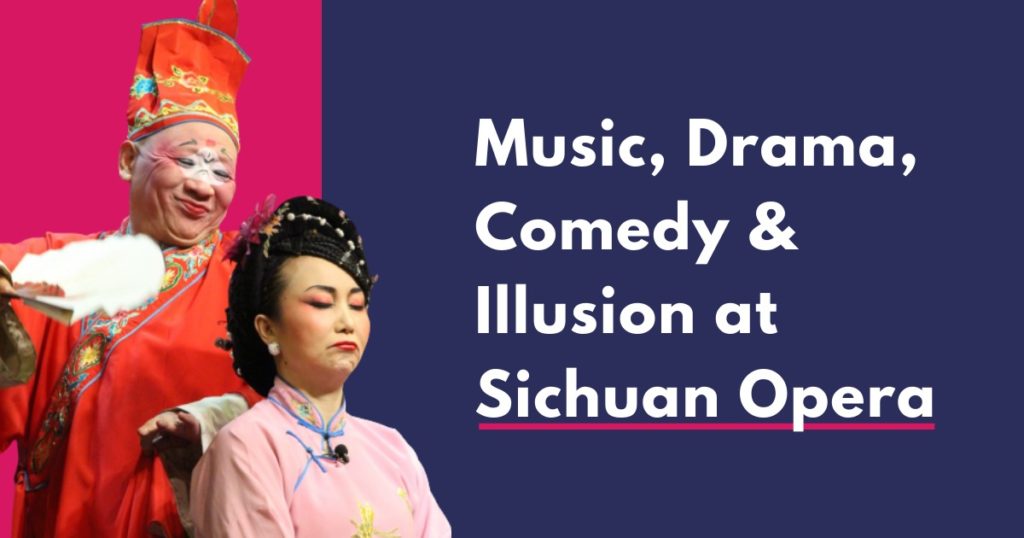
Explore the world of Sichuan Opera.
Did you know that you can publish your pictures on UN-aligned? Contact us with your offer.
August Quiz: Learn with The Gordian Quiz
